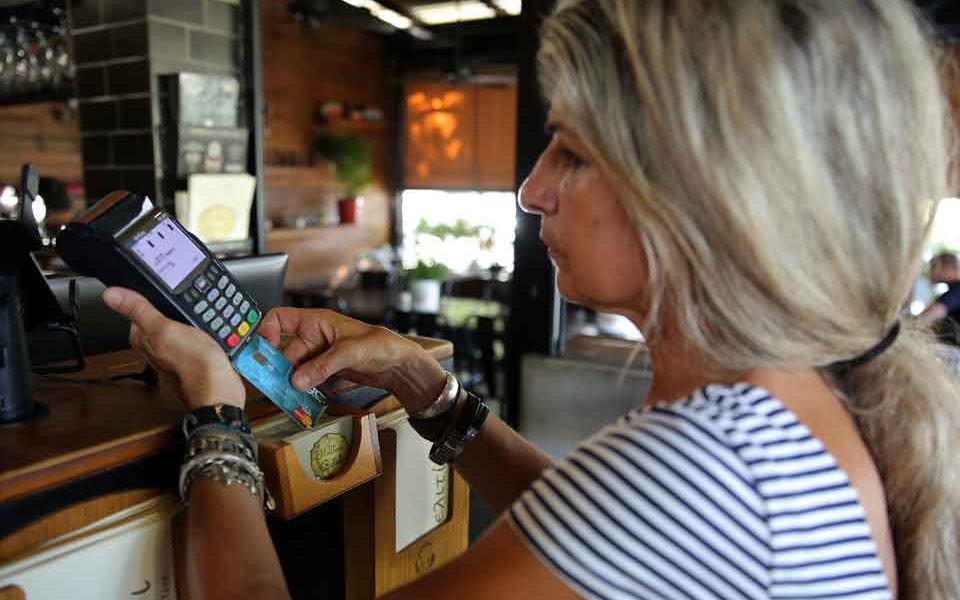Huge rise in card use last year

Use of plastic money in Greece has soared since the imposition of capital controls in 2015, according to European Central Bank data, narrowing the wide gap that previously existed between this country and its European peers.
The capital controls were first introduced in Greece in June 2015. That year transactions conducted by credit or debit cards amounted to 5 percent of the gross domestic product, while two years later they jumped to 12.1 percent, approaching the average eurozone rate of 14.8 percent.
Figures show that the absolute number of card transactions has grown sixfold since the government imposed the restrictions on capital flows: In 2014 they amounted to 88 million before rising to 144.4 million in 2015 and 505.1 million last year.
In 2017 every Greek made an average of 47 card transactions, while in 2014 that figure was just eight transactions per person. The value of transactions grew from 6.1 billion euros in 2014 to 8.9 billion in 2015, while in 2017 – when most professionals were forced to accept card payments – it soared to 21.5 billion euros.
Although the rate of card transactions in Greece as a percentage of GDP is approaching the European average, the difference with similar markets, such as Portugal (where card transactions added up to 40.5 percent of GDP in 2017), shows that the scope for growth remains considerable in this country. In 2017 the rate in Cyprus stood at 20.1 percent of GDP, in Spain 14.3 percent, in France 23 percent and in Britain – the chart topper – 45.9 percent.
The main difference in Greece is the comparatively low number of standing orders via cards and money transfers between accounts, which are a particularly popular means of online payment across Europe.
Greeks displayed a clear preference for debit cards over credit cards last year, using them for 407.3 million euros’ worth of payments, which is five times the 2015 total and 12 times that in 2014, which illustrates the rapid penetration of cards once the capital controls were introduced.





